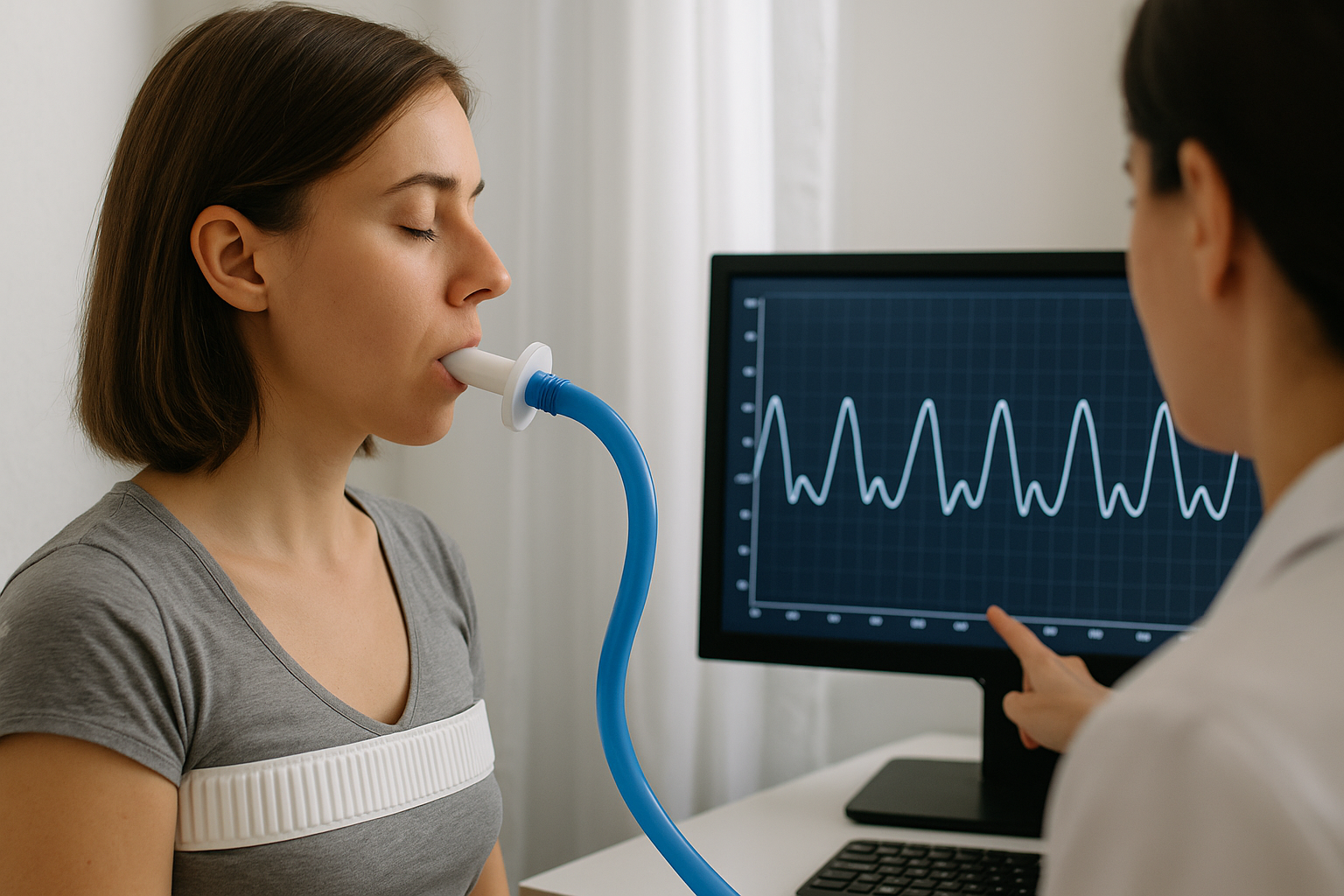Your Body's Stress Barometer: Physical Cues That Reveal Your Stress Level
In our fast-paced modern world, stress has become an almost ubiquitous part of daily life. While some stress can be beneficial, motivating us to meet deadlines or respond to challenges, chronic stress can have detrimental effects on our health. Recognizing the physical cues that our bodies provide can act as a stress barometer, alerting us to when stress levels may be reaching harmful levels. This article explores these physical manifestations of stress, delving into how they can serve as indicators of our mental state. By understanding these cues, we can take proactive steps to manage stress and maintain overall well-being.
The Science of Stress: Hormonal Havoc

At the core of stress responses is the release of hormones such as cortisol and adrenaline. These hormones are part of the body's fight-or-flight response, preparing us to face immediate threats. However, when stress becomes chronic, the constant presence of these hormones can wreak havoc on bodily systems. Elevated cortisol levels, for instance, can lead to weight gain, high blood pressure, and a weakened immune system. Understanding the hormonal basis of stress is crucial, as it underscores the importance of managing stress to prevent long-term health issues. This section lays the groundwork for recognizing how these hormonal changes manifest physically.
Skin Deep: Epidermal Indicators

The skin is often referred to as the body's largest organ and can be one of the first places to show signs of stress. Conditions such as acne, eczema, and psoriasis can flare up in response to increased stress levels. Stress-induced changes in the skin are believed to be linked to the inflammatory response triggered by stress hormones. Additionally, stress can lead to habits such as skin picking or nail-biting, further affecting skin health. By paying attention to these dermatological signs, individuals can assess their stress levels and take steps to alleviate stressors before they manifest more severely.
Tension and Tightness: Muscular Responses

Muscle tension is a common physical response to stress, often manifesting as tightness in the shoulders, neck, and back. This tension can lead to headaches, migraines, and even chronic pain conditions if not addressed. The body's instinctive response to stress is to contract muscles, preparing for action, which, in the absence of physical release, can result in persistent discomfort. Regular physical activity, stretching, and relaxation techniques such as yoga or meditation can help alleviate muscle tension. Recognizing muscle tightness as a stress indicator allows individuals to incorporate these practices into their routines for better stress management.
Digestive Distress: The Gut-Brain Connection

The gut is highly sensitive to stress, often referred to as the "second brain" due to its complex network of neurons and its ability to operate independently of the brain. Stress can disrupt the gut's natural rhythm, leading to symptoms such as stomachaches, bloating, and changes in appetite. Conditions like irritable bowel syndrome (IBS) are often exacerbated by stress. Understanding the gut-brain connection highlights the importance of managing stress to maintain digestive health. Techniques such as mindful eating, probiotics, and stress-reduction practices can help support gut health and reduce stress-related digestive issues.
Cardiac Clues: Heart Rate and Blood Pressure

The cardiovascular system is highly responsive to stress, with immediate effects on heart rate and blood pressure. During stressful situations, the heart beats faster and blood vessels constrict, increasing blood pressure. While this response is beneficial in short-term scenarios, chronic stress can lead to long-term cardiovascular issues, including hypertension and heart disease. Monitoring heart rate and blood pressure can provide valuable insights into stress levels. Incorporating cardiovascular exercises, practicing deep breathing, and ensuring adequate rest can help mitigate these effects and promote heart health.
Respiratory Reactions: Breathing Patterns

Stress can significantly impact breathing patterns, leading to shallow or rapid breathing. This type of breathing reduces the amount of oxygen reaching the brain and other vital organs, potentially exacerbating feelings of anxiety and panic. Recognizing changes in breathing as a stress cue allows individuals to employ techniques such as diaphragmatic breathing or mindfulness meditation to restore calm. Consistent practice of these techniques can improve overall respiratory health and enhance the body's ability to handle stress more effectively.
Sleep Signals: Insomnia and Fatigue

Sleep is often one of the first areas affected by stress, with many individuals experiencing insomnia or disrupted sleep patterns. Stress can lead to a heightened state of alertness, making it difficult to fall asleep or stay asleep. Conversely, some may experience excessive fatigue due to the body's constant state of stress. Understanding these sleep signals is crucial, as prolonged sleep disturbances can lead to a host of health issues, including impaired cognitive function and weakened immunity. Establishing a regular sleep routine, limiting screen time before bed, and practicing relaxation techniques can help improve sleep quality and reduce stress.
Appetite Alterations: Eating Habits

Stress can drastically alter eating habits, leading to either a loss of appetite or overeating. This response is linked to the body's production of cortisol, which can increase cravings for high-fat, high-sugar foods. Emotional eating, or the consumption of food as a coping mechanism for stress, is not uncommon. Recognizing changes in appetite as a stress indicator allows individuals to address the underlying stressors and adopt healthier eating habits. Mindful eating practices and maintaining a balanced diet can help manage stress and promote overall health.
Immune System Impact: Susceptibility to Illness

Chronic stress can weaken the immune system, making the body more susceptible to infections and illnesses. Stress hormones like cortisol can suppress the immune response, reducing the body's ability to fight off pathogens. This can lead to frequent colds, infections, and a prolonged recovery time from illnesses. Recognizing the impact of stress on the immune system emphasizes the importance of stress management for maintaining health. Incorporating stress-reduction techniques, ensuring adequate nutrition, and getting regular exercise can help bolster the immune system and reduce the risk of illness.
Emotional Eruptions: Mood and Behavior

Stress can significantly affect mood and behavior, leading to irritability, anxiety, and depression. These emotional responses are often accompanied by physical symptoms, creating a cycle that can be difficult to break. Recognizing emotional changes as stress indicators allows individuals to seek support and employ coping strategies. Practices such as journaling, therapy, or engaging in hobbies can help manage stress and improve emotional well-being. Understanding the interplay between stress and emotions is crucial for maintaining mental health and fostering resilience.
Proactive Stress Management

Recognizing the physical cues of stress is the first step toward proactive stress management. By understanding how stress manifests in the body, individuals can take targeted actions to address stressors and improve their overall health. From hormonal changes to emotional responses, each cue provides valuable insights into our mental state. By incorporating stress-reduction techniques, maintaining a healthy lifestyle, and seeking support when needed, we can effectively manage stress and enhance our quality of life. Empowered with this knowledge, we can transform our body's stress barometer into a tool for well-being and resilience.
